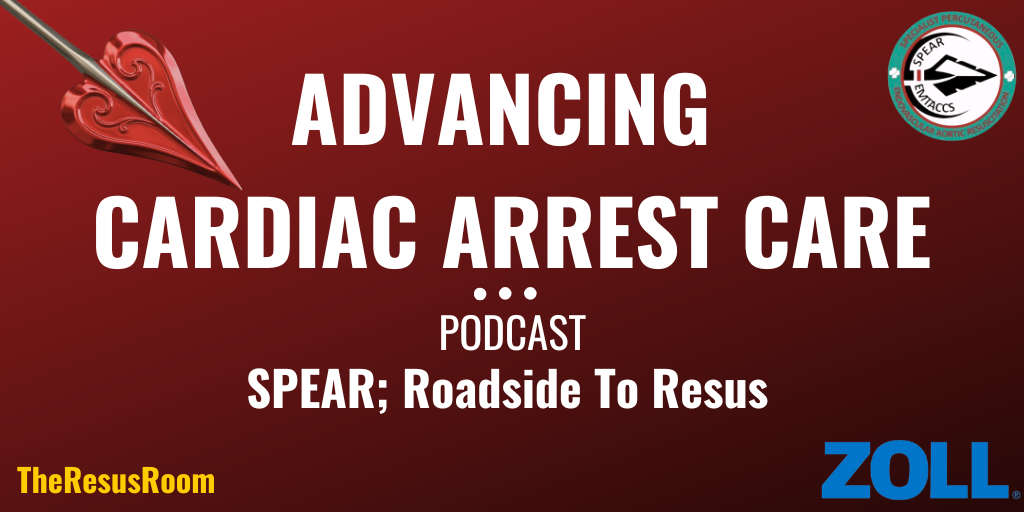This is a pretty special episode! If you’re involved in cardiac arrest management or care of critically unwell patients then there’s some ground breaking practice we’ll be discussing with the two founders of the SPEAR course;
Jon Barratt;
- Lt Col, British Army
- Emergency Medicine and PHEM Consultant, University Hospitals of the North Midlands
- Clinical Lead – Research and Clinical Innovation, Yorkshire Air Ambulance
- MERIT Consultant, West Midlands Ambulance Service
- Senior Lecturer, Academic Department of Military Emergency Medicine
Paul Rees;
- Surgeon Commander Royal Navy
- Consultant, East Anglian Air Ambulance & Barts Heart Centre
- Lead for Resuscitation Barts Health NHS Trust
- Reader in Cardiology & Resuscitation, University of St Andrews & QMUL London
- Defence Lead for Endovascular Resuscitation
- SPEAR co-founder
Ultimately in the episode we navigate through to the delivery of endovascular resuscitation both pre and in-hospital, building on the fundamentals of care and logistics which enable its delivery. We’ll be covering;
- Blood pressure monitoring both invasive and non-invasive, the evidence and the cohort of patients we should be targeting with invasive blood pressure monitoring
- Delivering complex medical interventions in unpredictable circumstances and environments
- Balancing the benefits of interventions with time required and workflow
- REBOA for medical arrests, the theory and the ERICA trial
- Improving recognition of ROSC
- The SPEAR course
- How to prepare services and departments for upcoming advances in resuscitation
There is something for everyone in here and a huge thanks to Jon and Paul for their time. Make sure to check out the links to the papers discussed in the episode below.
Once again we’d love to hear any thoughts or feedback either on the website or via X @TheResusRoom!
Simon, Rob & James
Now that you have listened to the podcast, start the quiz to add it to your CPD Diary
References


